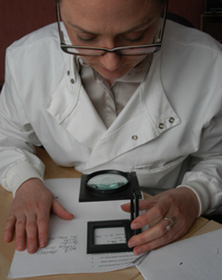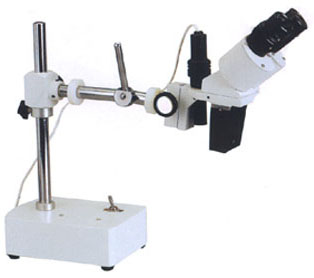Forensic Handwriting Expert
 A forensic scientist should hold a degree and also ideally a postgraduate degree in science, and those graduating in the last few years a degree or postgraduate degree in forensic science. Our expert holds both post graduate and undergraduate degrees in science.
A forensic scientist should hold a degree and also ideally a postgraduate degree in science, and those graduating in the last few years a degree or postgraduate degree in forensic science. Our expert holds both post graduate and undergraduate degrees in science.
A forensic handwriting expert should also have completed two years in-house training as a trainee document examiner at a recognized forensic laboratory, under the tutorage of experienced handwriting analysts. Over this time they will practice with mock cases and shadow the real case work of a mentor; they will continue to be supervised with real cases until their senior practitioners are satisfied with their scientific observations, analyses, findings and final opinion levels reached.
They will also undergo mock expert witness cross examinations and accompany colleagues to court hearings. Our scientist studied handwriting and document analysis as a trainee document examiner and later as a reporting officer at Document Evidence Ltd, which is now part of the Key Forensics company, and more recently worked as a senior consultant for the former Laboratory of the Government Chemist, now part of LGC Forensics.
 Until last year, the Council for the Registration of Forensic Practitioners (CRFP) was a society that was set up to screen forensic scientists and only accepted those for membership that passed a stringent peer review of a random sample of their casework. The more experienced forensic document examiners should have passed this type of assessment and have held membership with the CRFP. Our expert was a CRFP registered forensic practitioner with the society for a number of years in the areas of questioned documents, documents and handwriting.
Until last year, the Council for the Registration of Forensic Practitioners (CRFP) was a society that was set up to screen forensic scientists and only accepted those for membership that passed a stringent peer review of a random sample of their casework. The more experienced forensic document examiners should have passed this type of assessment and have held membership with the CRFP. Our expert was a CRFP registered forensic practitioner with the society for a number of years in the areas of questioned documents, documents and handwriting.
Expert witnesses are not required to have any formal legal training, but it is advisable that they have received some training in the production of court compliant expert witness reports and they understand that their duty is to the court. Our expert has received legal training in all aspects of expert witness duties, including cross examination, report writing and court room skills training from Bond Solon, the UK's leading legal firm of trainers for expert witnesses.
All expert court reports include the revised part 35 statements from the Civil Procedure Rules, which refer to the new version of the Statement of Truth and an additional clause referred to as the Declaration of Awareness that is now required from the 1st October 2009. Our expert understands that their duty is to give an unbiased report on their findings and express their opinions clearly to assist the court in reaching their own conclusions regarding a case.
Any practicing forensic scientist should also be a member of the Forensic Science Society in order to keep up to date with forensic research and other associated areas of science.
![]()
The business is temporarily closed,
we apologise for any inconvenience.
